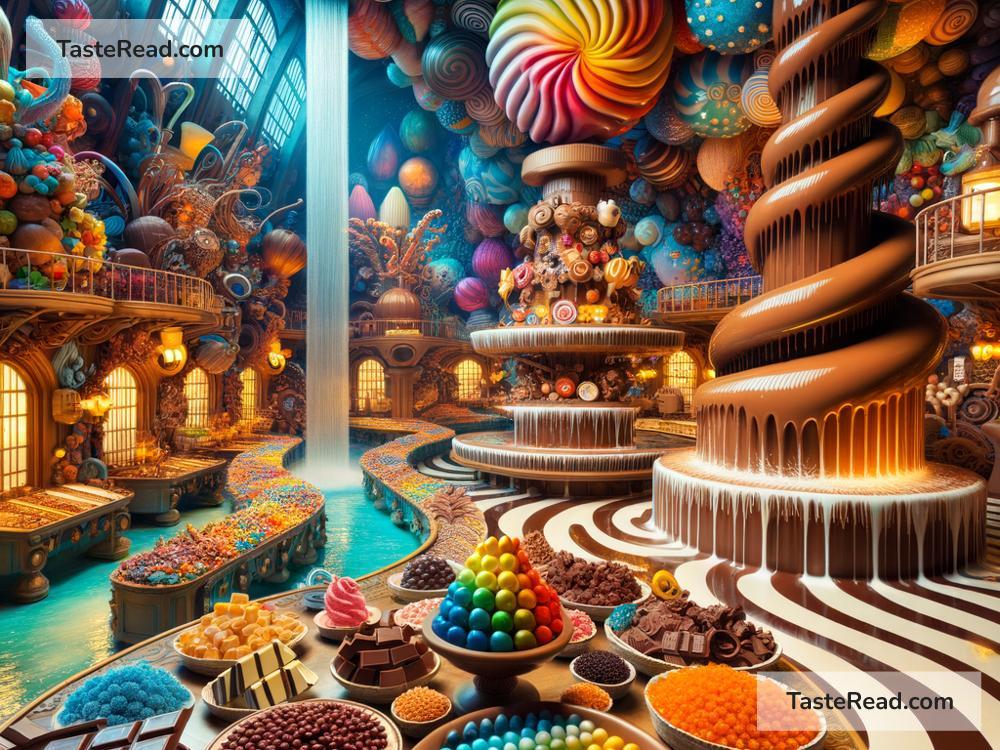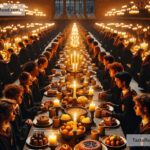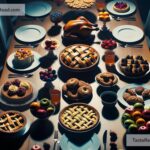Exploring the Role of Food in “Willy Wonka and the Chocolate Factory”
“Willy Wonka and the Chocolate Factory” is a magical tale filled with adventure, imagination, and lessons about character and kindness. One of the most important elements of the story is food. From rivers made of chocolate to chewing gum that tastes like a three-course meal, food plays a huge role in both the movie and the original book by Roald Dahl. But food in this story isn’t just about yummy treats. It represents deeper ideas about greed, self-control, dreams, and even morality. In this article, let’s explore how food shapes the story and teaches valuable lessons in a fun and creative way.
Food as a Symbol of Dreams and Fantasy
The first thing to notice about food in “Willy Wonka and the Chocolate Factory” is how magical it is. Willy Wonka’s chocolate factory isn’t like a regular factory — it’s a place where food becomes extraordinary. There’s a chocolate river, candy flowers you can actually eat, and chewing gum that’s basically a meal in itself. For the kids (and even adults), this world of food represents pure imagination and joy.
For Charlie, the main character, finding a golden ticket to visit the factory feels like winning a trip to a dreamland. Charlie’s family is poor and can rarely afford treats, so chocolate is extra special to him. The food in the factory isn’t just about eating; it’s about dreaming big. When Charlie steps inside, he feels hope, excitement, and endless possibilities.
Food and Greed
While food in the factory can be magical, it also reveals a lot about the personalities of the children who visit. Each child who wins a golden ticket has unique flaws, but these flaws often revolve around how they treat food. For example:
-
Augustus Gloop eats nonstop and doesn’t think about anything else. He’s so focused on satisfying his hunger that he falls into the chocolate river because he can’t control himself. Augustus teaches us that greed and lack of self-control can lead to trouble.
-
Veruca Salt doesn’t just want candy — she wants everything. She’s spoiled and demanding, and she treats the chocolate factory like a shopping spree. Veruca’s craving for more and more shows how greed isn’t just about eating but about wanting things without appreciating them.
-
Violet Beauregarde takes pride in chewing gum all the time. In the factory, she ignores Wonka’s warning and tries the magical gum that hasn’t been perfected yet. Her impatience leads to her turning into a giant blueberry. Violet’s story teaches us about the dangers of ignoring rules and thinking you know better than everyone else.
-
Mike Teevee isn’t obsessed with food, but he still gets into trouble because of his obsession with technology and fame. While the others have food-related flaws, Mike shows us that greed can come in many forms.
Each of these children’s problems ties back to an important idea: food (and what people do with it) can reflect their behavior. When people lack self-control or focus too much on their desires, it can lead to consequences.
Food as a Lesson in Moderation
Another major theme in the story is moderation — knowing when to stop and focus on what really matters. The kids who fall into trouble at the factory aren’t bad people, but they act impulsively. Augustus eats too much, Violet ignores warnings, and Veruca demands things she doesn’t need. None of them understand moderation or patience.
On the other hand, Charlie stands out because he shows self-control. When he wins the golden ticket, he doesn’t brag or act selfishly. Even in the factory, where everything looks delicious, Charlie stays humble. He listens to Wonka’s rules and doesn’t try to take more than he’s offered. Through Charlie, the story shows us the power of contentment and appreciating what you have.
Food as a Test of Character
Willy Wonka’s factory is magical, but it’s also a test. Each child’s interaction with food reveals their true character. Augustus and the others fail the test because they let greed and impatience get the best of them. But Charlie passes.
At one point in the story, Charlie makes a mistake. He and his Grandpa Joe drink fizzy lifting drinks that they weren’t supposed to try. However, when Wonka confronts them, Charlie does something important — he takes responsibility and admits he was wrong. As a reward for his honesty and kindness, Wonka gives Charlie the ultimate prize: becoming the heir to his chocolate factory. This shows that character matters more than perfection. It’s okay to make mistakes if we learn from them and do the right thing afterward.
Conclusion
In “Willy Wonka and the Chocolate Factory,” food isn’t just about delicious sweets and treats. It becomes a symbol of dreams, greed, moderation, and morality. The magical candy reminds us to dream big and use our imaginations. At the same time, the way people treat food shows their inner qualities — whether they’re patient, kind, or selfish.
Charlie’s journey teaches us that it’s not enough to want something; what matters is how we act and whether we treat others with kindness and respect. In the end, food in the story isn’t just fun — it’s a tool for learning about ourselves. So next time you watch the movie or read the book, think about the deeper meanings behind the chocolate and candy. You might discover some sweet lessons along the way!


